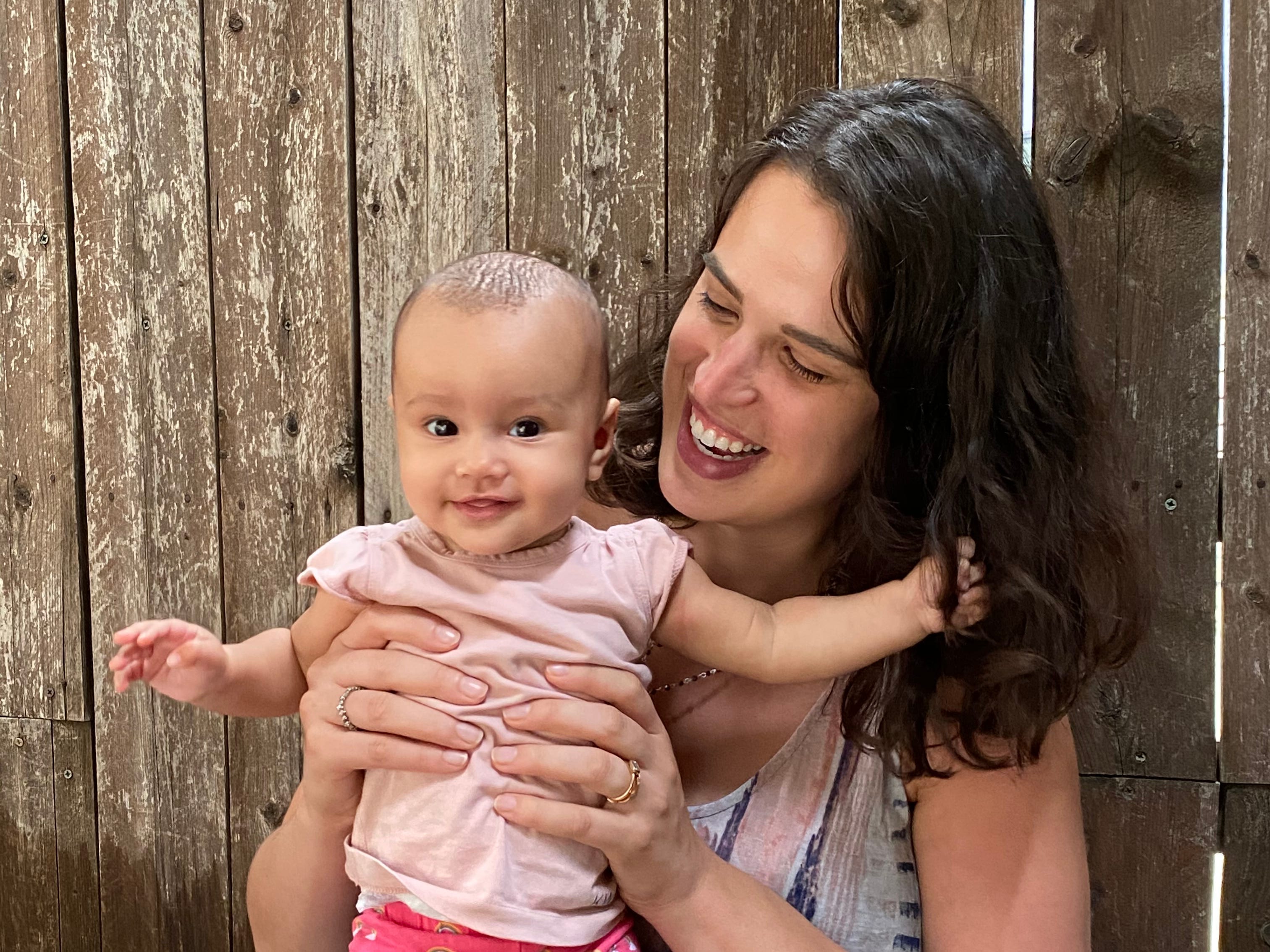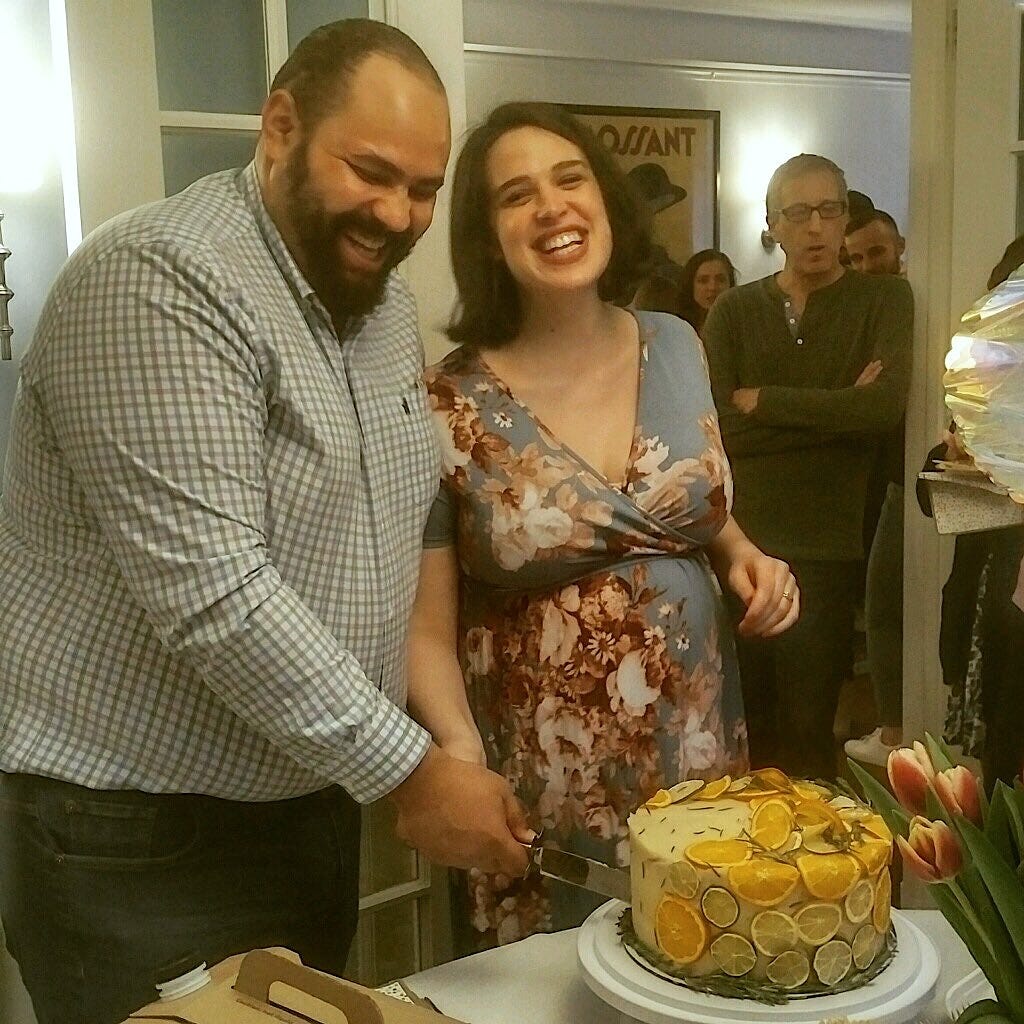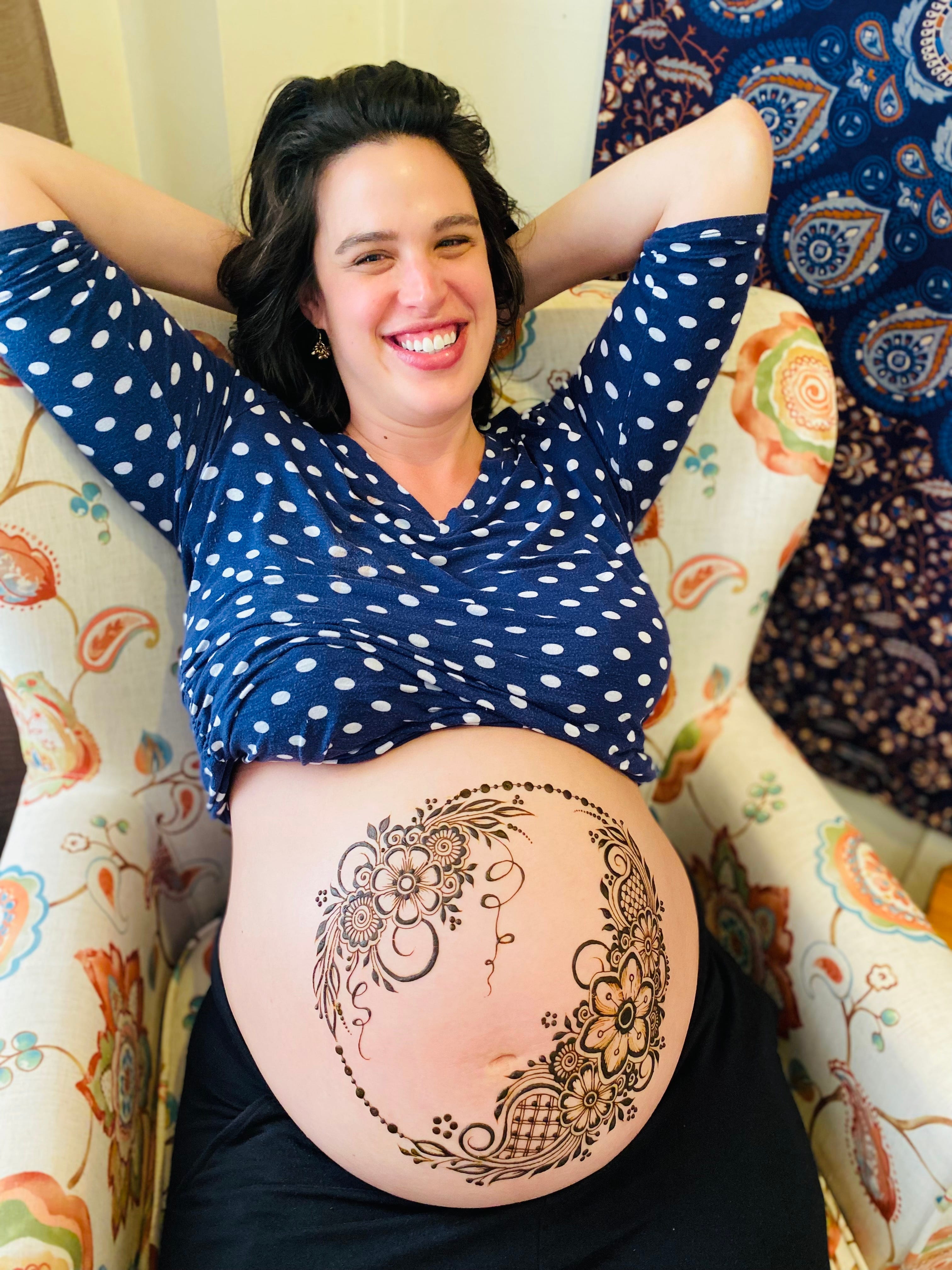
Courtesy of Hannah Howard
For most of my life, my body felt like a problem I had to solve.
Sometimes the solution looked like not eating. Other times, it looked like eating everything in sight and then drowning in shame. At different points, I was diagnosed with anorexia, binge eating disorder, and the frustratingly vague EDNOS — eating disorder not otherwise specified. The labels shifted, but the war remained the same: I was at odds with myself.
Heading to college ignited something. A new environment, new anxieties, and old beliefs collided, and suddenly, the diet culture I’d grown up with felt less like background noise and more like a tidal wave. I restricted. I binged. I obsessed. My body became the battleground where I tried to prove I was worthy — of love, success, belonging. It was exhausting.
I was nervous about what pregnancy would mean for my recovery
Recovery didn’t happen all at once. It never does. It was slow, nonlinear, and full of stumbles. I relapsed. I healed. I learned to feed myself with food, yes — but also with kindness, community, and the radical act of rest. I learned that hunger wasn’t something to be feared. It was a signal. A message. A chance to listen instead of punish.
So when I became pregnant with my first child, I braced myself for a storm. I expected the rapid body changes, the unsolicited advice, the suffocating cultural obsession with “bouncing back,” to send me spiraling. I hadn’t weighed myself in years, and I insisted on blind weigh-ins at my midwife’s office. I felt like I was holding onto recovery by a thread, white-knuckling my way through every appointment.
But then something strange happened.
Instead of falling apart, I felt… grounded. And proud.

Courtesy of Hannah Howard
My body was doing something miraculous
My body wasn’t betraying me. It was growing a person. I marveled at that. At the shift from hypervigilance to awe. My belly was expanding, my hips widening, and for the first time, those changes felt purposeful. I wasn’t gaining weight because I’d “failed.” I was gaining because I was creating. Nourishing. Becoming.
Of course, it wasn’t easy. Pregnancy was physically and emotionally intense. Postpartum was a fog of exhaustion and spit-up and meals eaten one-handed. But somehow, my body image didn’t take the hit I feared. If anything, it grew stronger. I had a C-section scar and a soft belly. But I also had this wild new respect for myself — for what I’d endured and who I was becoming.
Motherhood, it turns out, didn’t break me. It helped me rebuild.
My body carried me through the sleepless nights and endless feedings. It pushed a stroller for miles while I sang “Baby Beluga” on repeat. It held two babies, 19 months apart, close to my chest. It showed up for me and my family again and again, even when I wasn’t sure I could.

Courtesy of Hannah Howard
Motherhood has changed how I see myself
Today, I look in the mirror and see a body that’s been through something — and continues to show up. That soft pooch over my C-section scar? Yes, there are times I used to wish it away. Now, it feels like a badge of honor.
I’m not saying motherhood is a cure for an eating disorder. It isn’t. And I’m not suggesting that everyone’s experience will mirror mine. But I do think we need more stories that complicate the tired narrative that pregnancy and postpartum inevitably unravel recovery. For some of us, it can be something else entirely: a recalibration. A return. A radical reclamation of self.
There’s so much noise about what motherhood should look like — what bodies should look like. But my story is proof that sometimes, the biggest transformations aren’t about shrinking. They’re about expanding.
The post I worried having kids would trigger my eating disorder. It actually changed my relationship with my body for the better. appeared first on Business Insider.




